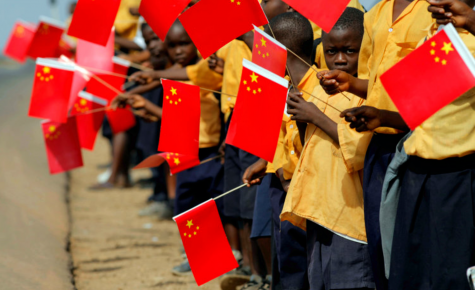Africa’s Second Coming of Imperialism: Why China Has Invested Billions in Some of the Poorest Countries in the World
 Starting with the Opium Wars, lasting from 1839-1860, until around 1949, China was subjected to crushing imperialism from countries near and far. Whether direct land grabs like in Manchuria by Japan or economic interference by the U.S., China suffered from a Century of Humiliation following rocky leadership and internal issues. Once seen as the “Middle Kingdom” and the center of world commerce, China became a country that many saw as uncivilized. Because of the years of conquest and creation of spheres of influence, along with a Communist revolution, the Chinese developed an ardent distaste for imperialism and imperialist countries. This distaste is why the involvement of China in global development and infrastructure projects, specifically in Africa, is so puzzling to many. As part of President Xi’s new One Belt One Road Initiative (OBOR), China has begun loaning and investing in third world countries near and far. As a country that still struggles with issues of infrastructure and poverty within its own borders, China faces many questions over its motives and reasons for its economic generosity and sudden urge to expand its “soft power.”
Starting with the Opium Wars, lasting from 1839-1860, until around 1949, China was subjected to crushing imperialism from countries near and far. Whether direct land grabs like in Manchuria by Japan or economic interference by the U.S., China suffered from a Century of Humiliation following rocky leadership and internal issues. Once seen as the “Middle Kingdom” and the center of world commerce, China became a country that many saw as uncivilized. Because of the years of conquest and creation of spheres of influence, along with a Communist revolution, the Chinese developed an ardent distaste for imperialism and imperialist countries. This distaste is why the involvement of China in global development and infrastructure projects, specifically in Africa, is so puzzling to many. As part of President Xi’s new One Belt One Road Initiative (OBOR), China has begun loaning and investing in third world countries near and far. As a country that still struggles with issues of infrastructure and poverty within its own borders, China faces many questions over its motives and reasons for its economic generosity and sudden urge to expand its “soft power.”
Among those concerned are the United States and the United Nations. They see China’s involvement abroad as exploitative and a form of debt diplomacy as well as inviting corruption within governments. These assumptions come along with the projects and the sheer amount of money that China is pouring into poor countries like the Congo and Kazakhstan.
China, as a huge nation of 1.4 billion people, is running out of many resources like lumber and precious metals. This mass shortage has led Chinese into other countries to obtain important materials. These practices are not new, however. For years the Chinese government has encouraged the immigration of Han Chinese into the autonomous regions of Tibet and Xinjiang within China as a means of “development.” Though these practices are providing large markets to often times economically deficient countries, the loans can bring debt, and the harvesting of materials can have severe environmental and domestic consequences. There is a dilemma for involved countries’ citizens because of the difficulty to decide if economic gains (which are often temporary) are worth sacrificing some autonomy and their environment, among other things.
In short, China is creeping into a modern form of imperialism as its economy and population grows. Not only are these practices increasing China’s global presence, but they are also aiding China in some of its domestic plights. Economic progress and cooperation between the government and its people have long gone hand in hand in China. As its economic progress has slowed, China has been forced to find new economic outlets. The One Belt One Road Initiative has already proven highly successful for China, but international critics maintain a highly pessimistic view of the project as they fear the exponential growth of Chinese power in the coming years with the formation of new alliances and friendships around the world and an increasingly autocratic government domestically.
Full Article: https://docs.google.com/document/d/10tjL4GxUHUVnjeSGTAx_9aMmDtBaCa3LUjoZCVsHixA/edit?usp=sharing

Iris Rodriguez is a senior at Keystone and plans to attend Tufts University next year. She's involved with clubs like Keystone's Literary Magazine, Model...
